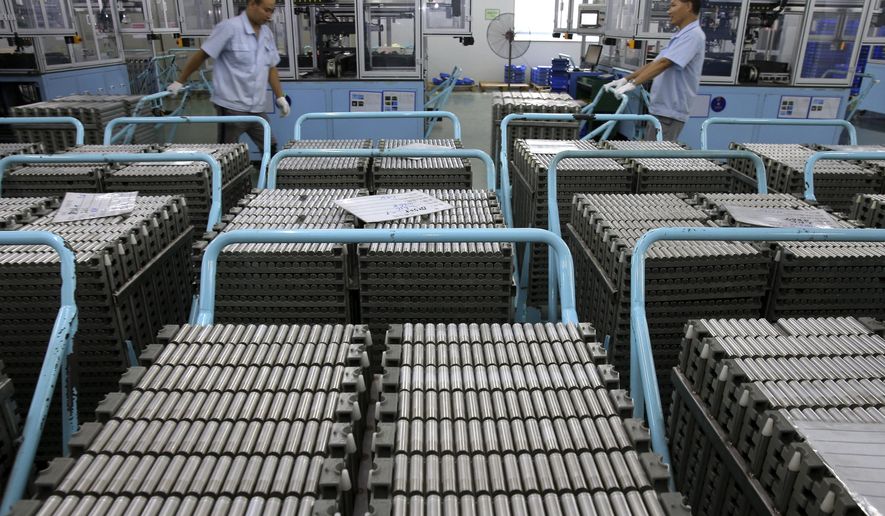OPINION:
Next time, be careful what you wish for—Dionysus, god of wine, to King Midas.
Lithium has been coined “white gold” for a good reason. In carbonated form, it quickly replaces the “black gold” of oil as a centerpiece for new energy sources. Lithium is an essential element to smartphones and batteries for electric cars. Is it a panacea to relieve us from the carbon footprints of gasoline-driven autos and trucks, thus protecting the environment from fossil fuels?
Unlike lead batteries, lithium-based batteries are light and long-lasting. They are less susceptible to extreme temperatures and easily recharged. According to advocates, electric cars present a realistic dream to reverse the threatening trends of human-induced global warming.
However, there are considerable drawbacks to this dream. Lithium is not easily obtained. According to a 2020 study by the Institute for Energy Research, it can take 500,000 gallons of water to extract a metric ton of lithium from the earth. While much of this extraction is done in other countries, especially in China and South America, soon the United States will need to decide how to extract lithium within its own borders to establish independence. Another reliance on foreign sources for our energy, such as the OPEC oil debacles in earlier decades, could be disastrous.
This problem leads to controversies over where to obtain lithium from our lands. So far, the areas with the most potential are protected under designation as natural wonders or national parks that deserve protection. For example, places such as the Panamint valley in the western part of Death Valley hold rich deposits of “white gold.” If permitted, companies would need to build major roads that can handle trucks and commuter traffic. This could threaten the pristine and remarkably eerie aspects of Death Valley that attract travelers from all over the world.
Another problem concerns how 500,000 gallons of briny water used to extract lithium can be safely released into nature. Researchers and reporters have found that this altered water can easily kill a variety of wildlife and fish. Indeed, if consistency is a guideline, those opposed to fracking for oil should raise similar opposition to lithium extraction.
A third problem is the simple availability of freshwater. States in the Southwest are facing drastic depletion of freshwater from the Colorado River and Lake Meade. Water rationing might soon be a reality. Should we speculate on sending water from the Great Lakes or our Maryland reservoirs to the millions of citizens who chose to live in the desert? Imagine choosing between directing 500,000 gallons of freshwater to nourish crops, animals, and fellow citizens or to lithium deposits to energize electric vehicles.
In this light, we might be faced with a Devil’s bargain: Smartphones and electric cars or our mountains, rivers, and native creatures? This dilemma has caught environmentalists in a strange paradox. While they support the goal of electric vehicles (i.e., cleaner and cooler air), they cannot abide by the side effects generated by lithium excavation. No wonder environmentalist Guillermo Gonzalize remarks, “This (lithium) isn’t a green solution. It’s not a solution at all.”
“Beware what you wish for…” is an adage found in Aesop’s Fables, ancient Chinese tales, and generations of folk wisdom. In the case of King Midas, he wished that everything he touched turned into gold. Have not many of had similar wishes? Ingrates as humans tend to be, we soon become both inundated and inured with our unexpected goodies.
King Midas soon regretted his wish and pleaded with Dionysus to reverse the order of things. Presumably, if you are the god of wine, you are tranquil and joyful enough to forgive mortals their moments of instability.
In this light, despite good intentions, it remains dubious that the electric car is a panacea. It is also not clear how humanity’s incessant demand for more energy to support our endless needs and wishes will be addressed by a Dionysus of the 21st century. The current demand for lithium will be a test for today’s deities.
• Alexander E. Hooke is a professor of philosophy at Stevenson University. His most recent book is Philosophy Sketches—700 Words at a Time, 2nd Edition (Apprentice House)




Please read our comment policy before commenting.